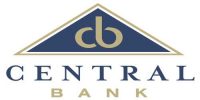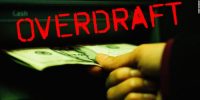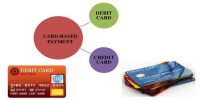The person who performs the banking activities such as accepting of deposits, lending money, withdrawing facilities, exchanging of money is known as a banker. In other words, the person who directly related to the banking business is called banker. Cheques are a form of payment that is recorded by accountants on your receivables ledger.
On the following grounds a banker can terminate the payment of a cheque:
(1) Countermand of Payment: The drawer of a cheque can stop the payment of a cheque by informing the banker either on the telephone or through a message. The banker will suspend the payment.
(2) Customers Balance: The banker can refuse to make the payment of a cheque if his balance is not sufficient to cover the cheque. While one draft facility case is different.
(3) Payment in Due Course: The banker can refuse to make the payment of cheques which is not according to the instructions of the drawer or it is presented after the office hours.
(4) Marking Cheques: A drawer may get a particular cheque marked from his banker. The banker will retain the amount in order to honor the marked cheques. Bankers always honor these cheques first and other cheques at the end.
(5) Forgery of the Drawer Signature: If the bank is doubtful about the signature of the cheque then he will refuse the payment.
(6) Notice of the Customers Death: The banker will terminate the payment of a cheque if he receives the notice of the Customers death.
(7) Making of Receiving Order: If the court satisfied that the customer appears to be insolvent it will issue a receiving order and banker will refuse to make the payment.
(8) Trust Funds: If the banker is satisfied that his customer by breach of trust is crediting the trust funds to an account, the banker may refuse to make the payment.
(9) Instruments Other Then Cheque: The banker can refuse to honor the instruments other than a cheque.
(10) Torn or Cancelled Cheque: If the cheque is torn or canceled the banker may refuse the payment for a Cheque.
(11) Out Dated: If the cheque is post-dated the bank will not honor the cheques.
(12) The difference in Words and Figures: If the amount stated on cheque differs from the amount expressed in figures, the banker will refuse the payment or a Cheque.
(13) Particular Branch: The bank will refuse to make the payment of a cheque if it is presented at a branch at which the customer’s account is not available.
(14) Lost or stolen: If a cheque is lost or stolen and drawer informs the bank well in time, the bank will refuse to honor the cheque.
(15) Irregular Endorsement: If the endorsement in the cheque is irregular the bank will not make the payment of the cheque.
(16) Joint Account: If the deckle is not drawn according to the account holders instructions, or at the death of one party, the banker can refuse to make the payment and he will decide about the payment according to the instructions.
(17) Partnership Account: The banker will not make the payment unless the cheque is signed by all partners. The death of a partner dissolves the partnership.
(18) Company Account: At the time of opening an account company provides a copy of a resolution passed by the directors. According to the resolution authorized person can operate the account. If an unauthorized person draws a cheque the banker will dishonor the Cheque.















